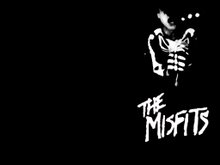 Ego depletion refers to the idea that mental activity that requires self-control (i.e., the ego) relies on an energy that can be used up. When that energy is low, mental activity that requires self-control is impaired. In other words, using one's self-control impairs the ability to control himself or herself later on. In this sense, the idea of willpower is correct. In an illustrative experiment on ego depletion, participants who controlled themselves by trying not to laugh while watching a comedian did worse on a later task that required self-control compared to participants who did not have to control themselves while watching the video, such that they did not try to control their laughter but rather watched the comedian without trying to control their laughter.
Ego depletion refers to the idea that mental activity that requires self-control (i.e., the ego) relies on an energy that can be used up. When that energy is low, mental activity that requires self-control is impaired. In other words, using one's self-control impairs the ability to control himself or herself later on. In this sense, the idea of willpower is correct. In an illustrative experiment on ego depletion, participants who controlled themselves by trying not to laugh while watching a comedian did worse on a later task that required self-control compared to participants who did not have to control themselves while watching the video, such that they did not try to control their laughter but rather watched the comedian without trying to control their laughter.References: Baumeister, R. F., Bratslavsky, E., Muraven, M. & Tice, D. M. (1998). Ego Depletion: Is the Active Self a Limited Resource? Journal of Personality and Social Psychology, 74(5), 1252-1265; Muraven, M., & Baumeister, R. F. (2000). Self-regulation and depletion of limited resources: Does self-control resemble a muscle? Psychological Bulletin, 126, 247-259; Muraven, M., Tice, D. M., & Baumeister, R. F. (1998). Self-control as a limited resource: Regulatory depletion patterns. Journal of Personality and Social Psychology, 74, 774-789.
External links: Resources and Articles on Ego Depletion; Ego Depletion and Alcoholism;
This article is licensed under the GNU Free Documentation License. It uses material from the Wikipedia article "Ego Depletion". Link may die if entry is finally removed or merged.

